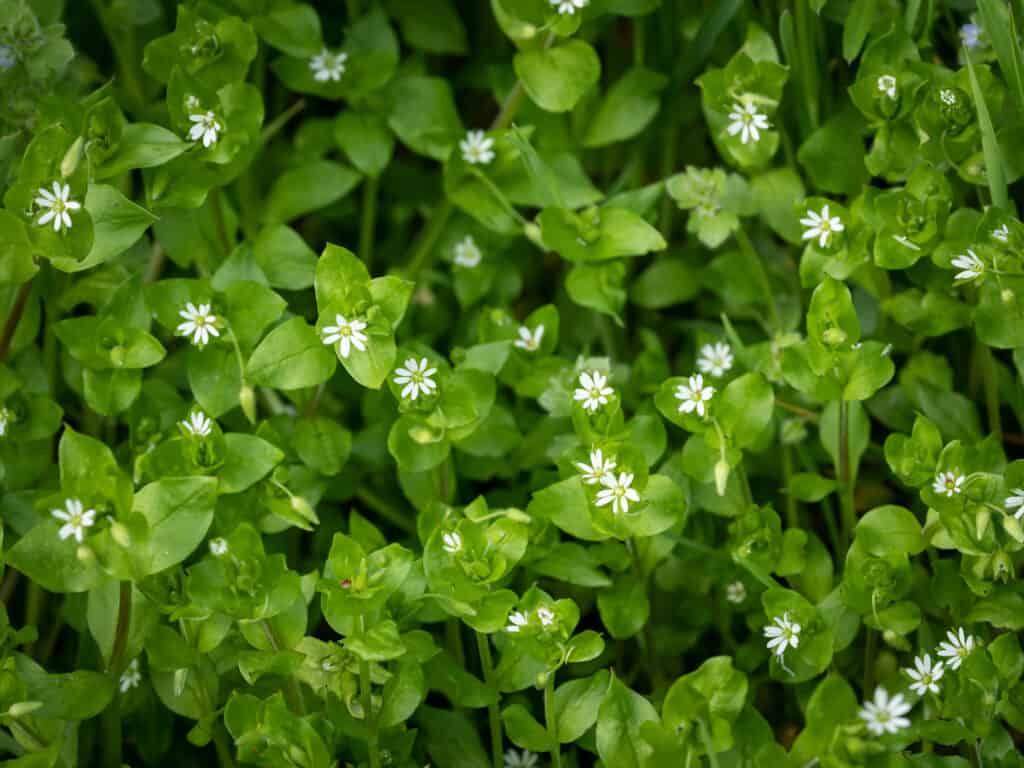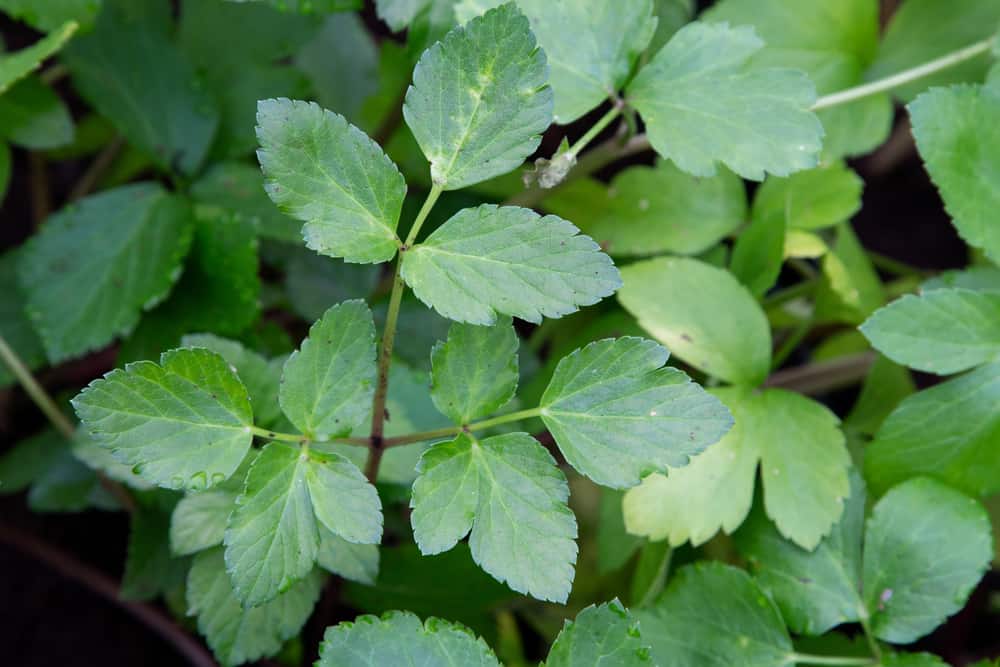Part Time Nanny required. Five afternoons a week, 2.30-6pm, looking after two young children (2 & 4yrs) after school/nursery. You would need to collect from school so a driver’s license is essential. Use of car availableAdditional hours for housekeeping, holiday cover and babysitting also available if interested.
We are based between Wincanton & Gillingham (<10 mins from each).
For details send CV to [email protected] or call for more information on 07884230579.
Part Time Nanny required
Do I need a prenuptial agreement?
Congratulations! You’re engaged. You’re now looking at setting the date, booking the venue and writing the guest list; but have you considered a pre-nuptial agreement? Or do you think that’s only for the very wealthy?
With the average age for first marriages now well into our 30s and the fact that second marriages are increasing year on year, people are thinking more about the need to protect the assets which they have already accumulated, in the event of a separation.
What is a prenuptial agreement?
A ‘pre-nup’ is an agreement entered into by a couple prior to their marriage or civil partnership. It sets out who owns what and outlines what would happens to their assets and income if their relationship breaks down.
Who should get a prenup?
You should think about setting up a prenup if you:
- Have assets that you would not want to share if the relationship broke down
- Have children from an earlier relationship and want to protect their inheritance or keep specific assets for them
- Have your own business, or perhaps a family farm, which you want to retain control of
- Want to safeguard money or assets that you are expecting to receive in a future inheritance
- One of you has debts and you would like a clause acknowledging that those debts are nothing to do with the other partner
Relationship breakdown is never easy. Emotions can run high and it can be difficult to think about financial matters.
If an agreement cannot be reached and Court proceedings are necessary this can be very expensive and stressful. The UK court has a wide discretion when dividing assets and this can result in uncertainty for all. By entering into a properly drafted prenuptial agreement you can alleviate some of that uncertainty and stress as you will already have agreed how to divide your assets in the unfortunate event of the relationship breaking down.
Are prenups binding in the UK?
Currently, in England and Wales prenups are not 100% legally binding. The Court will always retain jurisdiction. But, if a prenuptial agreement is properly entered into then it will carry significant weight in any subsequent court proceedings.
What do we need to do to enter into a prenup?
It is important that both people receive proper advice and the following formalities are adhered to:
1. Both people must enter into the agreement of their own free will and without any duress, influence or pressure.
2. Both people must provide full and frank financial disclosure to each other.
3. Both people must obtain independent legal advice from separate solicitors before entering into the agreement.
4. The agreement should be fair and reasonable to each party. (It is prudent to specify review dates for key events in the future, such as the birth of a child or say in 5, 10 or 20 years’ time to ensure the agreement remains fair and reasonable)
5. The agreement should be finalised no later than one month prior to the date of the marriage.
6. Each person should intend that the agreement determines the outcome of their financial arrangements in the event of divorce.
All of these formalities are crucial – if they are not complied with then a Court may decide to ignore the prenuptial agreement. Prenups are not for everybody but they are certainly not just for the rich and famous anymore.
If you are looking for further advice about prenuptial agreements please contact Kimberley Davies on 01202 338569 or at [email protected]
Trethowans – Law as it should be
Eighty glistening eyes stared at me!
‘I was shocked when I heard a loud gurgling sound as I took the bins out one night – but was delighted when I saw what it meant’, says Jane Adams.

I first heard the gurgling when I was putting the recycling out.
It was a dark, wet night, and as I dragged the bin to the curb, the sound grew louder. I wondered if the sewer under the lawn was blocked again, and sighed. Poking rods down the drain hadn’t been a pleasant experience.
Weirdly, when I returned with a torch, the sound had stopped. But waving a light around the garden, its beam came to rest on something unexpected; eighty glistening frog eyes. And as I stared back, their gurgling and croaks restarted.
The possibly-wrong pond
We’d dug a pond the previous autumn. Friends had helped. Dreams of dragonflies flying round the garden had spurred us on. At 2×1 metres, the pond was small. But it had a shallow and a deep end, and a liner, and we’d thrown in a few native aquatic plants. We weren’t sure if what we were doing was right, but it was worth a go.
I hadn’t given frogs much thought until then. Well, you don’t, do you?
And yet ‘common frogs’ are far less common than their name suggests. Slug and snail killing pesticides have cleared many gardens of the common frogs’ biggest food source. Imported diseases have weakened and killed them. And, in the UK, we’ve lost 500,000 ponds in the last century. Is it any wonder common frog numbers have been falling for over 40 years?
The start of something good
That year, the first year I saw them, February started icy cold, then turned to drizzle; the cue frogs need to emerge from the undergrowth and spawn. For a few days, our previously lifeless pond had overflowed with sex crazed frogs, and their clumps of spawn filled the shallows. Local frogs had needed a pond, and I hadn’t even realised.
Fourteen years later, that same small pond is now the wildlife hub of our garden. Mammals and birds use it to drink and bathe. Dragonflies, damselflies, newts, and toads lay their eggs amongst its weeds.
And, as I drag the recycling out to the curb, and February’s drizzle descends, I smile at the sound of gurgling.
How you can help your local frogs:
- Add a pond; they prefer one 2m across, but even a tiny ‘pond in a pot’ helps
- Provide piles of rocks, logs and leaves; spaces to shelter from predators, shade in hot summers and for food foraging
- Avoid using pesticides and slug pellets; an unwanted garden pest is welcome food for frogs and toads, and the chemicals may be harmful
By Jane Adams – Naturalist. bTB Badger Vaccinator. Nature writer. Photographer. Bee Watcher.
Kitchen Assistant/Commis Chef | Plumber Manor Hotel
Plumber Manor Hotel and Restaurant
has an opportunity for a young person interested in training to be a Kitchen Assistant/Commis Chef to join our team. You would have general kitchen duties and training with prep and starters and we would be happy to send the successful applicant to day release at College. Start date could be delayed to the end of the school year. We are looking for someone with enthusiasm and interest in food, no experience necessary although helpful, but able to work as part of a team with good time management. Car driver essential, uniform provided.
Split shifts mornings and evenings and some weekends.
Please send CV to [email protected]
Plumber Manor Sturminster Newton DT102AF
01258 472507
Three reasons why you should put your Will in place properly
Expert help on common domestic legal issues from the team at Porter Dodson LLP.
The importance of a Will is often not realised until someone actually discusses their wishes, says Tom Mottram from Porter Dodson.

We have, in previous editions, advocated the importance of carefully considering and putting in place provision for the devolution of your estate.
It is often not until someone discusses their wishes and affairs that they recognise the importance of a Will.
We frequently deal with families and friends of individuals who have died without keeping theirs up to date. The implications for such parties can be extremely costly at what is already a difficult time. Below are three crucial reasons (and it is a non- exhaustive list) for putting your Will in place properly and making sure you keep it under regular review.
1. Ensuring your estate passes to your chosen beneficiaries
In the absence of a valid Will, the law will choose to whom your estate passes and how as well as who manages everything after your death. Often this will not be as you intend, or it may fail to recognise the specifics of your circumstances. For example, you may have lost touch with certain people or
feel that others are in greater financial need. One beneficiary may be more connected to your home, your affairs or your business.
Circumstances, wishes and rules change over time. Aspects such as these must be addressed if
confusion and upset are to be avoided. Otherwise disputes can arise, which are expensive to resolve.
2. Inheritance Tax
The government has frozen the tax-free allowance for several years, meaning more people may unknowingly find themselves in a taxable position. A professionally prepared Will can help to capture allowances and exemptions that the taxman has made available, allowing more of the estate to pass to your beneficiaries.
3. Protection and flexibility
Sometimes it may not be appropriate for an intended beneficiary to inherit. Perhaps they are young, financially irresponsible or experiencing matrimonial difficulties.
We’re here for you
We cannot issue you with a crystal ball (we keep this just for the lottery numbers), but we can prepare your Will so that your beneficiaries are looked after without risking their inheritance.
If you need to make or review a current Will, we can help you so that you make the decisions that are right for you and your family.
To find out more, contact Tom Mottram: [email protected] or 01305 756317.
Wild (and free) food is springing up!
Few know that the much-derided chickweed is an amazingly tasty salad green packed full of vitamins, says expert forager Carl Mintern, who shares what you can find in February on your daily walk.

Chickweed is abundant almost all year round, and is an amazingly tasty salad green, packed full of vitamins
February definitely feels like winter, but with the days lengthening we can turn our thought toward the spring. Shoots are starting to appear in hedgerows and snowdrops are already making their welcome appearance.
Some wild plants or edible mushrooms are available, or even at their best, right now! Alexanders (Smyrnium olusatrum) are one such plant. Alexanders are a biennial first introduced to our shores by the Romans, who brought it with them as a pot herb. They are among the best wild vegetables of spring. It is widespread, some would call it invasive, in coastal regions around the Blackmore Vale, across the whole of the south of the country in fact but can also be seen inland. Hedgerows are where you should be looking for this plant. You can pick the stems right now and they will continue to be harvestable when the first flower buds appear in late March and April and beyond.
With a flavour similar to angelica or parsley, the stems are delicious steamed or boiled, or lightly fried tossed in butter. Salads can be invigorated with their leaves and flowers.
As always, be sure you know what you are collecting: never munch on a hunch (as every forager knows). Particular care must be made to avoid some of this plant’s cousins in the carrot family, which include both hemlock and hemlock water dropwort, both of which are deadly.

or lightly fried and tossed in butter
The lowly chickweed
A particular favourite of mine is Chickweed (Stellaria media). This common plant is an amazingly tasty salad green and is packed full of vitamins. This weed can replace lettuce in any salad and is out there growing right now. It can be found in meadows, waste ground and gardens. The beautiful white flowers will also liven up the appearance of a salad.
Chickweed is abundant almost all year round and is certainly one every forager should add to their repertoire.

The velvet shank mushroom (Flammulina velutipes) are at their best right now, are a great mushroom to add to asian dishes
Winter mushrooms
Finally, let’s mention a great winter fungus, the velvet shank mushroom (Flammulina velutipes). You can find these bright coloured orange- brown caps fruiting through the winter. Velvet shank mushrooms are saprophytic, meaning they live on dead and decaying trees. Look for orange-coloured caps (3-7cm across when fully grown), growing in large profusions. They have a glutinous layer to their caps in all but the driest conditions.
They are related to species of mushrooms cultivated in Japan and are a great mushroom to add to asian dishes. They superficially look like some other species including the deadly funeral bell. But while the funeral bell is a summer/ autumn mushroom, the velvet shank is a winter bloomer.
This lovely species will start showing itself in early winter and can continue until around March.
See details and availability of Carl’s local foraging courses on his website Self sufficient Hub here
by Carl Mintern
Knock down ginger isn’t much fun for the vulnerable
Monthly news from the various North Dorset Police Teams. This month’s news from Shaftesbury’s PC Rob Hammond
Shaftesbury’s policing team has a new sergeant, and PC Rob Hammond says the team have been focusing on anti-social behaviour by youths.
The Shaftesbury team have undergone some changes this year with the departure of the popular PCSO Phil Dibble. He has gone to join Wiltshire Police as a PC, and we wish him luck.
This leaves me (PC 740 Rob Hammond) & PCSO 5382 Su Leatt as your neighbourhood team. Another change is the departure of our supervisor PS 731 James Francis – he has moved to the youth offending team based in Verwood.
Joining the teams as Sergeant Francis’ replacement is Police Sergeant 1404 Matt Bradley, who comes to us from CID.

Gillingham & Shaftesbury had reports of youth related ASB. Officers were out visiting locations known for youths congregating. One intoxicated youth was found unconscious & getting colder by the minute after being left by his ‘friends’ in Shaftesbury (fortunately some other youths located him). An ambulance was called, the youth kept warm & details of his parents gained who were also contacted.
Once it was ‘knock down ginger’…
Lately we have been focusing on antisocial behaviours (ASB) mainly by youths who seem to think knocking on doors and running away is fun. It’s an old game, but it’s not fun at all for the person who could be vulnerable inside. We have identified some of those responsible, and these have been referred into the youth offending process.

After several reports of this vehicle driving dangerously over recent weeks, officers found it driving around Shaftesbury in the middle of the night with no lights on. Unfortunately when officers put their blue lights on, the driver didn’t want to talk and sped off from them. It didn’t take long to locate it abandoned nearby. Driver is believed to have no documents and as such their car was seized
Taking illegal cars off the road
Noisy cars and document offences have also been a focus recently. The rural teams regularly seize non-insured vehicles in order to make the roads safer; we try to highlight these on our social media feeds, along with regular updates on all our activities.

Teams from Shaftesbury & Gillingham, supported by officers from FSG, PDU (and of course the dog) executed an MDA (drugs) warrant at an address in Gillingham. One male was arrested and is assisting us with our enquiries. Ref 55220012411.
For details on your local team’s future engagements please refer to our website. As always, if you wish to contact us follow the links. You can report non urgent matters via 101, and remember if you see a crime in progress or a person in danger call 999.
The names we farmers get called… | Farm Tales
…are often predictable and not always flattering. But a new term has appeared which reflects modern green thinking, says Andrew Livingston.

Farmers get called a lot of names – and they’re not always nice: yokel, yeoman, crofter.
Even Worzel Gummidge still!
But a term I recently heard was that we are Carbon Stewards. Well, that’s a step up, and pretty fitting with the current fight with climate change.
Any good carbon steward worth their salt will have to know their way around their dirt. You really can’t get away from soil… it is quite literally everywhere! Still to this day, in the 21st century, I don’t believe we know everything about the earth underneath our feet. On a basic level, soil is made up of five ingredients – minerals, organic matter, living organisms, gas and water.
As I stated last month, ploughing is now seen as an archaic practice; the breaking of the soil releases carbon dioxide into the air. Now, arable farmers are being instructed to plant what is called a cover crop to introduce more carbon into the ground – a process called carbon sequestration.
Enrich the soil by doing less
Cover crops are designed to feed the earth rather than the farmer and his customers. Predominantly, when cover crops are grown to the required height, rather than being harvested, they are killed in the field so their matter can feed back into the soil. Richer soil health is not only better for the environment, but it can also increase the health and yield of your cash crop.
Additionally, the roots of the cover crop help trap and hold moisture – which can later water any nearby growing plants and vegetation, rather than having to use an irrigation system.
Finally, cover crops add important nutrients such as nitrogen into the soil, improving the growth of your harvest crop that sow into the ground next.
How they’re used
There are two main types of cover crops; ‘catch’ and ‘companion’. The first aims to catch and store as many nutrients, water and carbon dioxide into the ground before your next crop comes in. Companion crops will be grown alongside your cash crops, with the added benefit of attracting pollinators to the cash crop. With the constant reduction of pesticides being used on farms, farmers are also beginning to grow ‘sacrificial’ crops for pests such as insects and birds to eat. Think of it as placing a McDonalds next to a Michelin Star restaurant to keep the general riff-raff out!
The downside
The issue with cover crops is it is hard to see where your profit is coming from. It’s unusual to plant a crop to just kill it where it stands; you wouldn’t rear a lamb to have it slaughtered and left in the field. Some farmers are admittedly slow to take to cover crops. With margins on farms being so tight, it’s understandable that they don’t look to the future by protecting their soil. It’s not that they don’t want to take on that mantle of ‘carbon steward’, it’s more that they are worried that fighting for your ground doesn’t put food on the table or the shops. Thankfully, the new Environmental Land Management Scheme (ELMS) is to have funding for farmers who look to nurture their soil. Also, some water companies are offering grants for farmers’ cover crops to help trap nitrogen in the soil.
(play the short video above with sound UP to enjoy a Purple Tansy cover crop in Dorset last summer)
Maybe it’s time to try something completely different?
You might find something you’ll love. I did, says Mel Mitchell, who was dubious about enjoying an ‘aerial hoop’ fitness class.
As you may remember I spoke about trying new forms of exercise in some of my previous articles. This week I had the pleasure of trying an aerial hoop class.
I was asked by a friend and fellow fitness instructor ‘so, when are you coming to my aerial hoop?’
Me being me and always up for trying something a bit different, I booked in. If I’m completely honest it’s not something I ever saw myself doing – mostly because I have as much grace as a hippo on a sandcastle.
I was reassured though that this didn’t matter, and to give it a go anyway. I’m definitely glad I did.
No grace required
Aside from the fact that I might not have looked terribly graceful, I certainly had fun trying.
I went to class as a complete beginner, not knowing what to expect.
With great direction and lots of encouragement from Fran and the fellow attendees, I had my first few moves perfected (sort of). Needless to say, I may need a bit more practice before my circus debut.
I have in the past heard comments about aerial hoop being classed as a form of exercise. Well,
Fran is now the second aerial hoop instructor that I have met, and the amount of strength and control that these ladies have developed is unreal. It just goes to show that strength and fitness doesn’t have to come from your usual forms of exercise.
For those of you wanting to get into fitness, but wanting to maybe get into something a bit different then I would definitely recommend that you give it a go.
It is a fantastic form of cross training which builds strength and flexibility as well as improving balance and core stability. All while having fun hanging from a hoop doing your best cirque du soleil impression!
Instructor Fran Drake says
“I get asked a lot ‘what is a good age to start circus arts?’ The answer is any age! I also hear a lot of people who flat out refuse to try because they are ‘too old/not fit enough/not strong enough/flexible enough’. Barbara, 66, has been training for three years. Lisa, now 52, had no previous gymnastics or dance but has been aerial training for five years. Circus is for every age.”
Come and learn how to defy gravity with Phoenix Aerial hoop classes at Sturfit in Sturminster Newton. Wednesdays 5pm and 6pm, Fridays at 5:30pm. Class is £10.50 – simply book online here.







